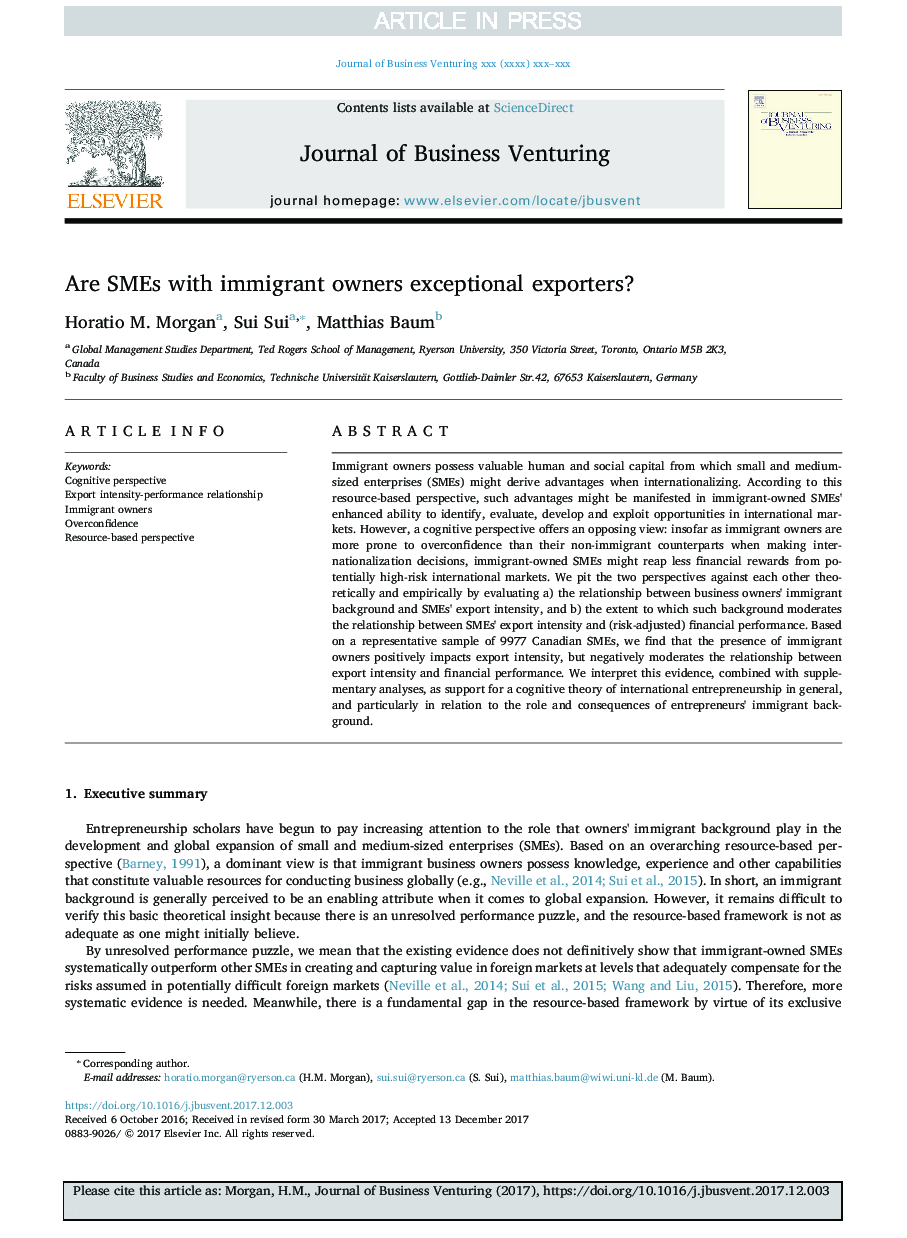| Article ID | Journal | Published Year | Pages | File Type |
|---|---|---|---|---|
| 7425658 | Journal of Business Venturing | 2018 | 20 Pages |
Abstract
Immigrant owners possess valuable human and social capital from which small and medium-sized enterprises (SMEs) might derive advantages when internationalizing. According to this resource-based perspective, such advantages might be manifested in immigrant-owned SMEs' enhanced ability to identify, evaluate, develop and exploit opportunities in international markets. However, a cognitive perspective offers an opposing view: insofar as immigrant owners are more prone to overconfidence than their non-immigrant counterparts when making internationalization decisions, immigrant-owned SMEs might reap less financial rewards from potentially high-risk international markets. We pit the two perspectives against each other theoretically and empirically by evaluating a) the relationship between business owners' immigrant background and SMEs' export intensity, and b) the extent to which such background moderates the relationship between SMEs' export intensity and (risk-adjusted) financial performance. Based on a representative sample of 9977 Canadian SMEs, we find that the presence of immigrant owners positively impacts export intensity, but negatively moderates the relationship between export intensity and financial performance. We interpret this evidence, combined with supplementary analyses, as support for a cognitive theory of international entrepreneurship in general, and particularly in relation to the role and consequences of entrepreneurs' immigrant background.
Related Topics
Social Sciences and Humanities
Business, Management and Accounting
Business and International Management
Authors
Horatio M. Morgan, Sui Sui, Matthias Baum,
